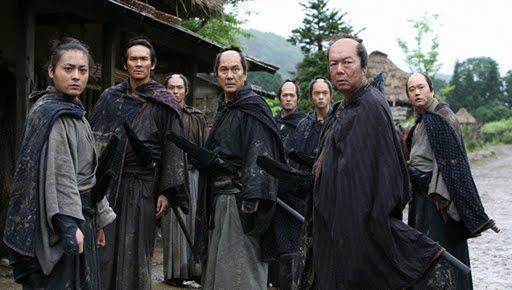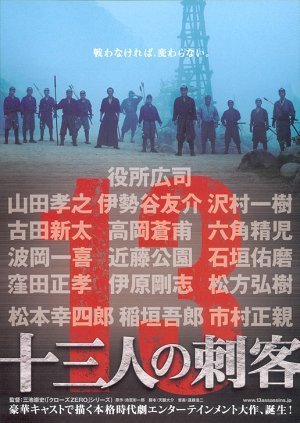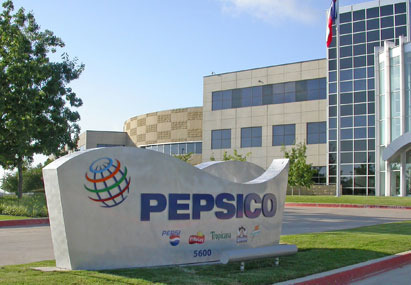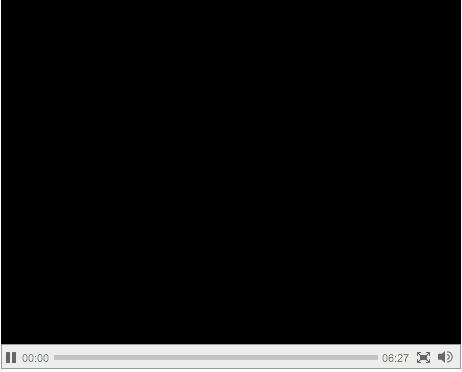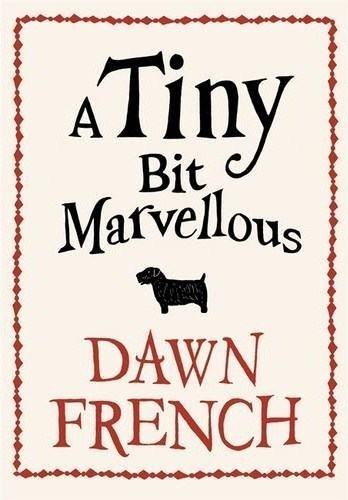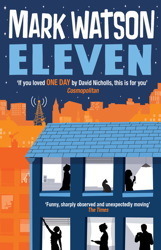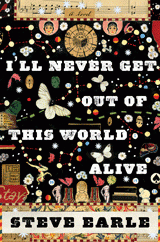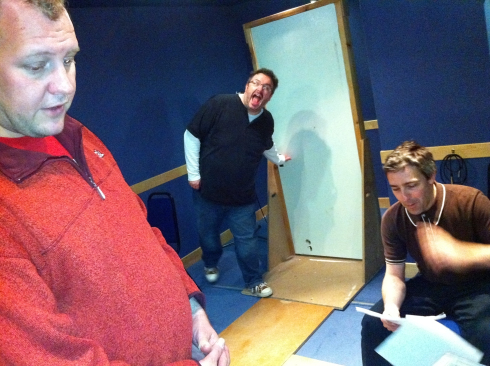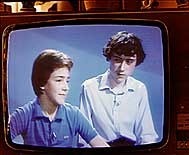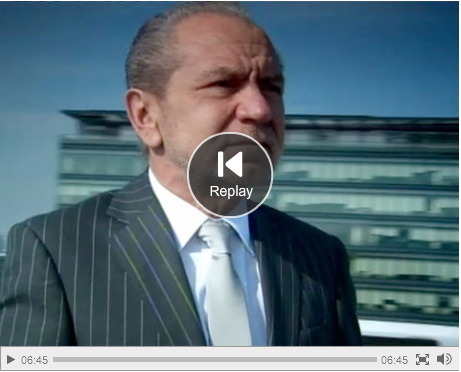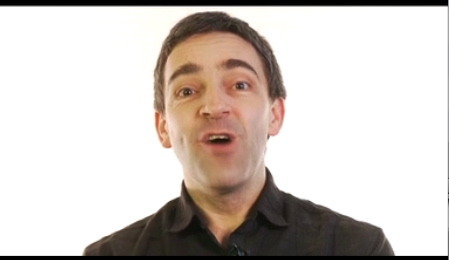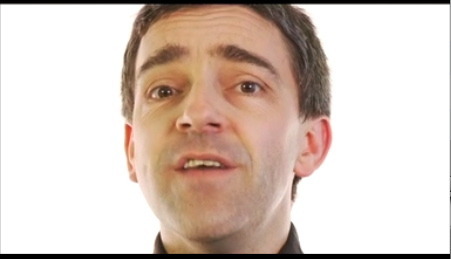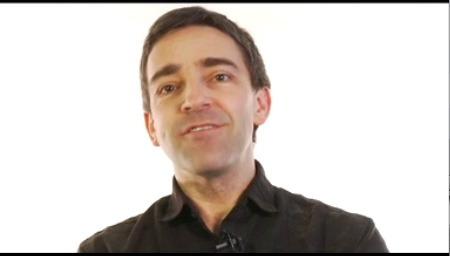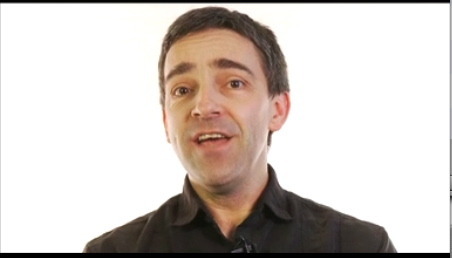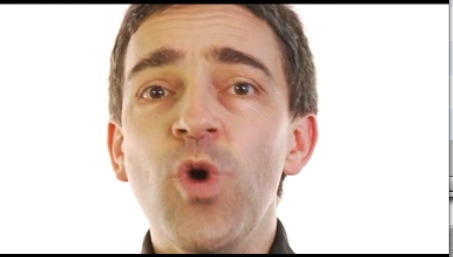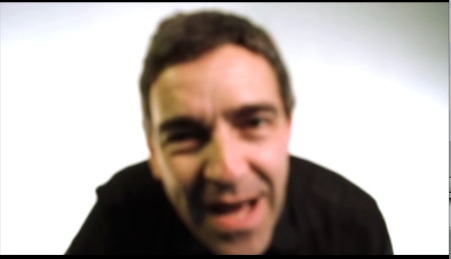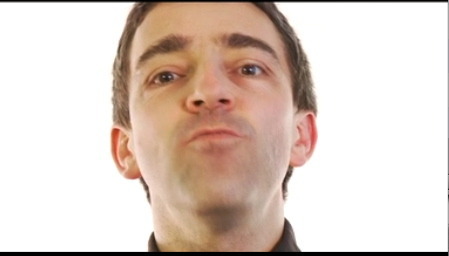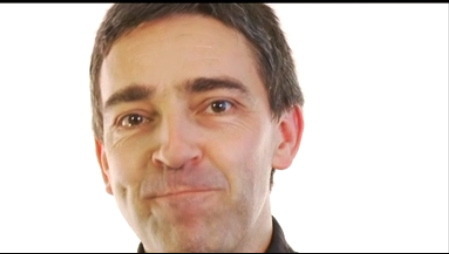Andrew Collins's Blog, page 55
May 24, 2011
Play it again, Samurai
Here's where I admit to not being a connoisseur of Asian cinema. I know, it's a big continent, but we speak confidently of European cinema, so let's just run with it. I went to the Curzon to catch up with the much talked-about 13 Assassins at the weekend. I was pretty much blown away by the experience, but, as I say, this may have as much to do with the fact I rarely find myself sitting down to watch a Japanese Samurai film at the weekend, so the very novelty of the pursuit may be at play. (There's an excellent dissemination of what Asian cinema means on Wikipedia, but to save you the bother: what I'm really talking about is East Asian cinema, which is to say, China, Hong Kong, Japan, Taiwan and South Korea.) I was a relative latecomer to world cinema in general, but the self-education I put myself through a decade ago was intensive, and it came at a time when I could afford DVDs, and my library stands testament to my enthusiasm for anything that wasn't English-speaking. I devoured the works of Akira Kurosawa, as you might – Rashomon, Ran, Seven Samurai, my instant favourite The Hidden Fortress, Throne of Blood, Yojimbo – and it is against these classic works that Takashi Miike's 13 Assassins is being judged. High praise indeed.
Anyway, I've never seen a Miike film before, chiefly because I got wind that they were especially violent, and that doesn't really appeal to me when I have so many other films to see – although I know he is incredibly prolific, and has dipped a toe into just about every genre. 13 Assassins seemed to me a good place to start, what with all the critical accolades. It's his Samurai movie. His jidaigeki (in other words, a Japanese period film). Set in Feudal Japan in the mid-1800s, when peace is fragile, it's a pretty straightforward set-up: evil ruler – in this case, the Shogun's sadistic little brother Naritsugu (Gorô Inagaki) – must be vanquished by a secretly-hired ragtag band of Samurai warriors on behalf of the peasants he exploits, led by the ageing Shinzaemon (Kôji Yakusho). It's a remake of a 1963 black-and-white original, but that doesn't matter unless you've seen it. Thirteen is an unwieldy number, and to be honest, the individual members of this growing platoon of do-gooders are difficult to pick out as the story marches towards its protracted siege climax as there simply isn't time to do more than sketch in their backstories, and of course they all have the same haircut, but the basic imbalance of 13 against 200 of the Shogun's brother's soldiers is clear enough. As is the thematic thrust of selfless honour in battle: these 13 are prepared to die for their cause. They are like good suicide bombers. (They do use dynamite, by the way, but mostly they use swords, and arrows, and rocks, and forethought, and cunning.)
It's The Dirty Dozen meets Zatoichi, and it's executed with style and supreme organisational confidence. The climactic battle lasts for about half of the film! It is relentless, but even with the surfeit of goodies to keep tabs on, Miike manages to keep you abreast of the finer points of the action as his protagonists scurry along passages and walkways in ones and twos, each pursued by countless royal guards, usually boxed in from the front and behind, swords swishing. It's a 15 certificate, but most of the slashing is without squirting blood. Miike, with that reputation for nastiness, plays his disturbing cards early on, with the opening seppuku (self-disembowelling) and the heart-rending sight of an abused peasant girl whose tongue has been cut out by the villain and who uses a brush held between her teeth to write the words, TOTAL MASSACRE. After that, the film is less overtly bloody than an episode of Silent Witness. Even the disembowelling is heard, not seen. What restraint.
TOTAL MASSACRE is 13 Assassins' unwieldy middle name. Its sheer relentlessness is its trump card. It makes a whole lot more sense if you forced-fed yourself Kurosawa in 2001.
Oh, and look at this fantastic Japanese poster!








May 23, 2011
Overnight sensation
So, Episode 2 of Mr Blue Sky – starring these people [above] – aired on Radio 4 this morning at the convenient time of 11.30am; I listened to it on headphones via my laptop in the British Library, which felt a bit weird. Secretly listening to my own work. Luckily it raises smiles rather than guffaws! (Or in my case, winces, and hopeful faces.)
As with the first episode last week, I have already received a handful of very positive comments on Twitter. This is gratifying, and I appreciate every one of them. How else am I to gauge how well it's going? I certainly can't trust my own opinion (and anyway, I know what's coming next, and the necessary pauses are like daggers in my heart when I listen live – I can only hope they aid easy listening for everybody else). Unlike TV, with a radio show there are no overnight ratings. I used to refresh Media Guardian's ratings page all morning after an episode of Not Going Out went out. Indeed, radio is simply not about ratings unless you're playing RAJAR wars as a station, or else you are a breakfast show. Numbers are largely irrelevant. It's more important that the general reaction is positive, and for that, you have to ask around. (Have they closed the Radio 4 message boards, by the way? These used to be a bearpit. If they have gone, I'm glad.)
A lot of Radio 4′s most loyal listeners just leave the station on all day. This is the mark of their loyalty. I guess one or two will have heard Mr Blue Sky in the course of their day, by accident. This is the way speech radio works – I understand that. But it does also mean that unless you sit down to listen to it, or put it on headphones, most of the subtle drama and "bittersweet" tone are going to drift off into the ether, or be drowned out by the noise of a lawnmower or the postman. (A comedy with a studio audience at least has guide laughter attached.)
I'm feeling it's going down OK. I get that impression. But radio listings in newspapers are, in general, tiny and tokenistic, so unless you're "Pick of the Day", which you only ever will be in week one, you're on your own. We were picked out in, I think, four newspapers, although one, the Mail, said it was "unfunny and unconvincing" so that didn't really increase traffic. (It should be noted that my colleague Jane Anderson, radio editor at Radio Times, kindly made Ep2 a pick in this week's magazine. Every little helps.)
As far as I'm aware, I've only had one printed review, by the lovely Elisabeth Mahoney in the Guardian. (You can read it here.) But there's no sense of Mr Blue Sky taking off or catching the public's imagination. Even those enthusiastic folk at the British Comedy Guide aren't discussing it (four comments, one by me!), despite this generous interview with me by the site's Si Hawkins. Hey, deal with it! This is just the way it is in a crowded multimedia market full of stuff.
In many ways, Twitter presents a false impression – if people didn't like it, I would expect them to have the decency to keep quiet about it (and if hey don't have that decency, I'll probably have already blocked them anyway). I merely point out that being on the radio has to be an end in itself, and not a means to another end, such as being carried shoulder high around the streets and bringing traffic to a standstill. It is an end. I am one of the lucky ones: four half hours of radio with my name on them. I must admit, I felt as nervous when Ep2 went out, in my ears, this morning, as I did when Ep1 went out, in my Mum and Dad's living room, last week. At any stage, I assume the whole edifice of legitimacy will come tumbling down, and I'll have my BBC pass revoked.
If, like most people, you are not glued to a radio at 11.3oam, Ep2 will be available for seven days here. (And no, for those that keep asking, it will not be available as a podcast, as Radio 4 do not tend to put narrative comedy or drama out as podcasts.)
And an opportunity to publish a nice new photo [above], which I have belatedly extracted from my phone, even though my phone does not allow you to upload photos to a Mac. I love the people in this photo.








The PepsiCo Challenge
I went into a Shell garage for a paper and I saw some eye-catching signage promoting the Shell shop's new sandwich/snack/drink range, Deli2go. Nothing unusual about this. Since the success of BP's Wild Bean Café, petroleum giants have been falling over themselves to massage their garage shops upmarket. Deli2go is Shell's go at this. The poster I saw was doing little more than advertise a "meal deal" promotion, where you pay a fixed price of £3.99 for a pre-packed sandwich, some kind of snack like a bag of crisps or a sausage roll, and a drink, such as a Coke, or a juice. I'm sure this will appeal to drivers looking for a quick fix of carbohydrate-based fuel, and will fool a few people into buying three items when they only want, or need, one or two. What tickled me about the promotion was this line, which appears underneath a mocked-up image of a wicker basket lined with gingham, containing the sandwich, crisps and Coke:
Inspired by farmers' markets
Inspired by farmers' markets? Have you ever heard anything so flimsy and pathetic? I've looked into it, and Deli2go use things like "farm-assured" cheese and "line and pole-caught" fish, which is to be praised and the veracity of whose ethical claims is not to be queried, but to throw in the weasel phrase "inspired by" and then link takeaway food to "farmers' markets" is a cosmic joke. Since actual farmers' markets are all about the producer cutting out the middle man and bringing their produce direct to consumers, which part of "farmers' markets" is the processing of produce by a third party, packaging it up, distributing it around the country from a centralised base and selling it on at "value added" prices at garages is this "inspired by"? Oh. The idea of farmers' markets! The notion of farmers' markets! The general feeling of farmers' markets! In actual fact, it's inspired by the two words that make up the phrase "farmers' markets": farmers and markets. Sorry, I was being thick.
Shell is one of the largest oil companies in the world, with revenues in the hundreds of billions of dollars. I sometimes buy petrol from them. But I don't take kindly to being treated like an idiot by their marketeers and corporate strategists. Shell and farmers' markets are polar opposites in terms of what they do. How dare Shell claim to be inspired by markets? Inspired by the market, certainly. But not markets. I've been to a farmers' market: it was some vans and trestle tables in a school playground on a Saturday morning with meat and cakes and vegetables for sale, in exchange for cash. The vans might run on Shell petrol but that's where the connection ends.
I think we live in a deeply sad world. A world where an oil company might seriously believe that it can sell more oil by pretending its fast food is in some way taking us back to nature. Corporations run our world, not governments – corporations to which I regularly give money, so don't get any funny ideas that I think I am above it all. But it's as well to see the danger. Corporations care about one thing and one thing only: the bottom line. This is why they are corporations and not governments or charities. They will do and say anything in order to take more money off us, even a single penny. (I loved it on Episode 3 of The Apprentice when one of the idiots complained that a gentlemen's outfitters wouldn't even take "one penny" off the retail price of a top hat. "Not even a penny – I mean how greedy can you get?" This is not a woman who understands capitalism and yet capitalism is her career choice.)
I have just read a typically fascinating and rigorous article by John Seabrook in the New Yorker (which I'd provide a link for, except that you have to be a subscriber to read their articles in full – non-subscribers can read a precis here), about PepsiCo, the largest food-and-beverage producer in the United States, and the second largest in the world after Nestlé. If PepsiCo were a country, its GDP would place it 66th in the world, between Ecuador and Croatia. It is not a country, it is a company. It rules the roost thanks to Pepsi, Tropicana, Gatorade, Fritos and Lay's (which are crisps) and other "bad for you" snack brands. Actually, they don't class them as "bad for you" at PepsiCo, they are "fun for you." But the big drive there, at the Mecca of Snack, is to render their famous branded products as "good for you." How? By reducing the salt and sugar content, mainly, but also by reintroducing things like antioxidants and vitamins into products where such inconveniences have been processed out in the process of processing them into other things. Why are they doing this? Because they care about America's obesity epidemic, and obesity epidemics further afield? No, because they care about the bottom line. And as people become increasingly aware of the link between eating snack food and drinking sweet drinks and getting fatter, they look to healthier options. In the piece, we learn that PepsiCo's share of the useless food market is down – in 2010, sales of Pepsi cola were down 4.8%, and overall carbonated drinks were down 2.6%. One way to reverse this trend, the brains at boardroom level seem to think, is make people who eat unhealthy food think that it is healthy.
It's a fascinating inside look at the way a massive corporation thinks, from the CEO – Indra Nooyi – down. Surprise, surprise, there's a lot of jargon about food and drinks being "scientifically advantaged" (the Flora ProActiv revolution in action), and we discover that the PepsiCo HQ screensaver bears the phrase, "performance with purpose", a brilliant way of rewriting the phrase, "profit with more profit." On top of all this guff, Nooyi herself, while overseeing a taste test, says with a straight face that the next phase for PepsiCo is to "snackify" drinks, and "drinkify" snacks. It would be laughable were it not so deadly serious. Basically, the biggest food-and-beverage producer in America, whose $60 billion revenue in 2010 was largely supported by selling crisps and fizzy drinks, expects us to believe it when it tells us that it wishes to "re-educate" us. No it doesn't. The only reason any corporation selling snacks and soda wants us to stay alive is so that we buy more snacks and soda. In an ideal world, it would keep us all on life-support systems so that we can at least still eat Fritos and drink Pepsi via tubes. It wants us alive, but only just.
This is fair enough. Why should any corporation care about obesity or health? Why should any corporation care about fair trade or farmers? It's a corporation. It exists only to make money, and if it takes a penny off a top hat, it loses a penny that it would much prefer not to lose. Which is why it irritates me when a corporation, be it Pepsi or Shell, pretends it's doing some good to the world. Pepsi doesn't want its food to be "good for you," it wants its food to appear better for you if it thinks you're more likely to buy it if that's the way it appears. If you, or I, fall for this, then more fool us. (And we do. We do.) Shell is not inspired by farmers' markets; it wants to appear to be inspired by them if it thinks you're more likely to buy their petrol if that's the way it appears to you.
Mind you, £3.99 for a sandwich, crisps and Coke? More Coke! More Snickers! I love these products! I wish they sold them at the farmers' market.








May 21, 2011
Embed
My third Telly Addict Guardian TV review thing – which is, I think, its technical title – is up. I can't actually watch it, due to the comical nature of my Vodafone wi-fi connection. But others have, so you may have more luck. I hope it's OK. I still can't embed it either. But then, technology is there to make life more difficult not easier.








May 18, 2011
The family that slays together
I'm catching up here. Animal Kingdom, the much-praised Melbourne-set crime drama, came out here in February, and I missed it for some reason. It's out on DVD in July. And it really is as good as you've heard. Not every family-based crime saga should be compared to The Godfather – it isn't fair! – and anyway, this is contemporary, and far more low-key and hand-held and mostly contained within a couple of locations. It put me more in mind of Matteo Garrone's Gomorrah. It certainly does for Melbourne what that film did for Naples, which is to belie tourist board perception and show that under the surface of any city, a netherworld of wrongdoing and violence seethes.
Having swept the board at the Australian Film Institute awards last year (ten wins out of 18 nominations for just about everybody involved in it), Animal Kingdom is an amazing calling-card for first-time writer-director David Michôd, whose funding wasn't harmed by the genre itself, or by Guy Pearce's name on the dotted line. I was writing about this very subject in last week's Radio Times: it's great how Australian and New Zealand actors go to Hollywood to achieve fame, often after years of slogging it out on daytime soaps, then return to their homeland to add their weight to smaller, homegrown movies. This is why Australian cinema is currently enjoying a quiet renaissance, I think. There's even a link to Australia's first wave of the 1970s, as Jacki Weaver, who plays the Cody family's touchy-feely-double-crossy matriarch, was in Picnic At Hanging Rock, one of the films that first put the national cinema out there in the world.
It starts with a death, at home, coolly and stoically dealt with, and we begin to meet the Cody family: one grandmother, three sons, one surrogate son, and one grandson, previously estranged, the 17-year-old "J" (a debuting James Frecheville, star of tomorrow). "The boys" are not crimelords or kingpins, but working suburban crims, on the edge of psychopathy but not full-blown monsters. Except, perhaps, for "Pope", the inscrutable eldest (Ben Mendelsohn), who seems capable of anything, and whose taunting of his youngest brother for being "gay" in the family kitchen is a tour de force of passive aggression. The middle brother, Craig (Sullivan Stapleton, very much in the Russell Crowe mould, physically) is a loudmouth thug who goads a waitress by smoking in a restaurant, but is oddly attractive and surprisingly vulnerable.
Joel Edgerton, who plays the friend, Baz, whose plan is to put the criminal life behind him and go into stocks and shares (I think it's set in the 1980s, but you can't tell with Australian men's haircuts), is an actor I already rate as he essayed a pretty impressive Northampton accent in the Northampton-set Kinky Boots (I didn't even know he was an Aussie at the time – Star Wars geeks will know him as the young Owen Lars). He and his brother, ex-stuntman Nash, also make films together and are, it seems, a key part of the Aussie renaissance. (I haven't seen their noir The Square, but would really like to.)
Animal Kingdom is a brooding film. It's hot and dry, as per the setting, and people wear vests and t-shirts and shorts, or, like Craig, walk around the house topless. Doors and windows are left open. You really get the feeling of a natural home life from the way the actors interact. I don't know if they actually lived together, maybe they did, but the milieu is utterly convincing. The mood is effortless. The lighting is artificial and queasy throughout, whether indoors or out. There's even a barbie, but even that's shot through with discomfort and the bonhomie is not Ramsay Street. This is a stylish film without being stylised. It's right up there in terms of recent Aussie cinema with Lantana and Jindabyne.
The music, all synth wash and sustained chords for creeping unease and rising dread – especially for "J", who goes through many changes – works like a dream. Antony Partos is the man to congratulate for that. But at the end of the day, it's the sum of the parts that makes Animal Kingdom such a knockout. The violence is shocking and casual, but it's not in your face, it's not there to shock with buckets of blood; in fact, it shocks for the very lack of melodrama and thriller cliche. Oh, and star-name Guy Pearce brings the quiet, naturalistic, unshowy authority you'd expect.
I can't recommend it more highly. This and Meek's Cutoff have been my favourite films of 2011 so far.








May 17, 2011
Three-for-two offer
I have just read three novels back to back, all out in paperback in June or early July. These are they. I really don't normally read novels, but I am reviewing them for the next issue of Word magazine, and it was a pleasing novelty to gulp down so much fiction in one go. I won't pre-empt the review, but I had to excise this opening paragraph, so I thought I'd post it here, as I quite liked it. But a preamble is a luxury, and I had to get to the books much quicker.
It's often said that everybody has a novel in them. I'm sure this is hypothetically true. But the difference between becoming a novelist and remaining a would-be novelist lies in the ability to extract the inevitable half-thoughts and brief story flashes, bring them to the surface and assemble them into something that actually reads for at least 40,000 words. (The Science Fiction and Fantasy Writers of America have been nerdy enough to specify a word-count for books – in case you're interested, if it's under 7,499 words, it's a short story; between 7,500 and 17,499 a novelette; and between 17,500 and 39,999 a novella.) Oh, and then you have to get it published.
I actually mainly liked the information from the SFWA. Who knew? (I have never written a novel. I think it might very well be too hard.)








May 16, 2011
Be glad of first night nerves
It doesn't get any easier. The first episode of Mr Blue Sky aired this morning, at 11.30, on BBC Radio 4. I was as nervous before it went out as I might have been waiting in the wings to go onstage. (Actually, in the action photo above, I have emerged from behind the glass to play the second of two cameo parts, a cancer patient called Mr Bellamy, and I am breathing in the rarefied thespian air of Justin Edwards and Mark Benton for a brief moment on the shop floor.) Come half past eleven, there was literally nothing I could do about it: the first 28 minutes' worth of my first solo-written sitcom was being given birth to, in public, and if I had, somewhere along the line, made a massive mistake, it would no longer be a secret. My cover would be blown. All that work, all those accursed rewrites and rethinks, all those drafts when it was in development as a TV sitcom, all that heartache when it was bounced from pillar to post, all that stress as it took shape in the mouths of professionals in a West London recording studio, all of them kind enough to give the impression that they thought it was alright … no hiding place! Mr Blue Sky went into the world. By midday, I was spent.
I've been forcing myself from the margins of showbiz onto the public for most of my life. Why? Why do I put myself through it? I don't know. The search for approval is the usual diagnosis of this unsavoury habit. Some kind of emotional neediness is another. But my Mum and Dad were always very attentive and appreciative when I shoved cartoons under their noses as a tiny boy, and shoved more elaborate cartoons under their noses as a more complicated teen. (I guess even they grew blasé about my creative itch and the yards of drawing paper it consumed, and once you've seen your eldest son in one school play, you've seen him in them all, but you dutifully turn out anyway, because you made him and it's your fault.) I remember a few milestones very clearly: the first scribbles of mine that were actually "printed" – and by that, I meant rattled off on some ancient carbon-based contraption at Abington Vale Middle School (don't look for it etc.) when I was about eight? I had rudimentary drawing skills. I wasn't that good. I was just more naturally equipped than most kids with a pen. So the headmistress, via my form teacher, pressed me into service to supply a couple of illustrations for a lyric sheet for an end-of-term carol service. These had to be scratched into some carbon paper – a most irksome process for a boy used to felt tips and crayons. Anyway, one was of Mary and Joseph and the baby Jesus, another was of a carol singer, a large musical note emanating from his mouth in the traditional Beano style, while a pound note was dropped into his hat. Miss Malins, the headmistress, was moved to comment upon the illustrations at the service, as the circular design I had etched into the pound note made it look like a ten pound note, and she cautioned parents that they need not donate such an extortionate amount!
After a misleading brush with top billing in an Abington Vale Primary School Wind In The Willows (I was a slapstick Toad with eggbox eyes), my school drama career settled into the rhythm of one spear-carrier after another. In fact, in one play at Middle School, I played a "Sentinel", whose job it was to stand motionless beside a king's throne throughout, even when Anita Barker tickled me with a feather duster. It got a laugh, without me lifting a finger. One Christmas, my friend Angus and I performed a two-hander at an end-of-term talent contest called The Dentist, which we'd conceived, and in which I played the patient and he played the dentist, but whose hilarious comic conceit was ruined by the curtains being already open when Angus and I laid out most of my Dad's toolbox on a table, thus giving away the escalating narrative before it had started. We didn't win.
At Weston Favell Upper School, my friend Paul Garner and I achieved a modest, geeky kind of "fame" when, through his Dad, who worked at the Chronicle & Echo, we had caricatures of film stars we'd drawn printed in the paper, which led to an appearance (above) on Look East. This was my TV debut. Our next door neighbour, John, who had a proper camera, took the photo off the telly, as it went out, as nobody had a video. Also at Weston Favell, I helped write and conceive Not The Sixth Form Revue (this was in 1982, so you must forgive the now rather hackneyed title), and gave myself a couple of plum parts, but I understood the democratic sketch group aesthetic and kept out of most of it, finding an equivalent level of satisfaction hearing my words coming out of other performers' mouths. I guess this is when I realised that I was in fact better off writing for other people, and that there was gratification to be gleaned from doing just that. The career in journalism which eventually awaited me after four years of drawing more pictures and failing to impress any of my tutors with it, gave me a chance to communicate with the public, or at least the NME's readership, without having to wait behind curtains for my entrance. My first byline in the paper consisted of just my initials, after a couple of capsule reviews of Vietnam films. This thrilled me to the bone nonetheless. In those pre-computer days, the only way to validate your words was to see them in print.
I think if I'd landed at the NME ten or 20 years earlier (ie. if I'd been born ten or 20 years earlier), I might have remained satisfied with shoving my words under people's noses and never have troubled television or radio with my face and my voice (neither of which I was entirely in love with at any stage, especially the latter). But this was the 90s, and journalists were being increasingly recruited as pundits – what we'd now call talking heads – and I was willing and able. ("Able" in the sense that I will keep talking when there is a dead air to fill.) Along with my new soulmate Stuart Maconie, who had a better face and a better voice, I drifted from print onto the airwaves, and we were suddenly writing words for ourselves to say. I wonder if anyone remembers Fantastic Voyage, our first radio comedy show, six parts on the old Radio 5, in which we played hospital radio DJs called Andrew and Stuart? We both got radio careers out of this fertile period of cross-pollination, but unlike Stuart, I was restless and still casting around for something else to do, and he edged ahead of me into mainstream broadcasting, while I dabbled with a new toy: scriptwriting.
At Family Affairs, and then EastEnders, I learned new skills. This was the toughest of all the jobs I'd ever had, and for that reason alone, it gave me the most satisfaction. After anything between four and six drafts of an episode of EastEnders, to see the finished programme go out, on BBC1, with a guaranteed audience, and to have your name at the beginning or the end of it, was the feeling of a job well done. (I saw more experienced writers than myself taken off an episode if it wasn't progressing fast enough between drafts, and knew that I was only as useful as my last script. This keeps a writer on his or her toes. You can get away with a lot more as a music radio DJ than you can as a television scriptwriter. Radio is transient, and that's why it's such a lot of fun to do.)
Had, at any stage, I concentrated on just one aspect of the media, I might have become an expert, or a specialist, or a master of one single trade, rather than what I am: a hyphenate, a dabbler, a fly-by-night, a second or third choice for the occasional lucrative panel game if somebody's dropped out, someone who had a crack at stand-up for a year, someone who has been on any number of TV and radio shows once, never to be asked back, and a writer who's most known for collaborating with others, because I'm fairly easy to get on with and don't have tantrums.
And here I am, scriptwriting, but also on the radio. It doesn't get any easier. I've been forcing myself from the margins of showbiz onto the public, sometimes by stealth or as a stowaway, for most of my life. Searching for approval and being too thin-skinned to ignore criticism. But I listened to the first episode of Mr Blue Sky go out, live, at 11.30am this morning, at my Mum and Dad's, with my Mum and Dad, in the very living room I left behind in 1984 in order to go and seek my fortune in London, a city I adore and despise at the same time, but it's where the work is. They seemed to enjoy the show. Others, on the internet, and by text, were equally supportive. I knew that the actors were good, and that the production was good, and the editing, and the badly-played piano, and the closing theme tune by Jim Bob, but I had no idea if the script was.
I was nervous when the actors first read it out, round a massive table at Avalon, in March, and I was nervous when I first listened to the finished programmes, on disc, about a month ago. But none of this compared to the butterflies I felt when I woke, feeling a bit sick, this morning. It's a ridiculous ordeal to put yourself through. But the satisfaction when it's not a complete disaster is the clincher.
Ironically, while I'm up at my parents', my next job is to get out my old felt tips and draw the caricature for that nice man who bid £363 for me to do so on TwitRelief. So I'm back at my Mum and Dad's, drawing a cartoon to shove under someone else's nose. I'm slightly apprehensive that I won't be able to actually draw a caricature any more. But fear gives courage wings.








May 14, 2011
King Alan
Sorry I haven't posted all week. I've been ridiculously busy. Here is one of the things I have been busy doing: the second Telly Addict TV review column for the Guardian. In it, I review Made In Chelsea, The Apprentice, Two Greedy Italians and the pirates episode of Doctor Who. Unfortunately, they have added a comments section at the bottom this week, which they didn't do last week. On doctor's orders, I am going to use all my willpower not to read the Guardian comments, as they can be crueler and more dismissive than anything you'll read under articles on the Mail or Telegraph websites, and my mental health must be preserved. I'm all for dialogue and debate and interaction, but I mustn't get dragged in. Hope you enjoy the new column. I am enjoying doing it. One day, I'll successfully embed it. But not yet.








May 6, 2011
My face, your computer
It can be revealed. For the last month, I have been piloting with the Guardian – a newspaper I have "taken", near-exclusively, for the entirety of my adult, newspaper-reading life, but have pretty much continually failed to get a job with – a brand new TV review column. Except not a column in the newspaper. Get with it, Granddad. This will be a column that you actually watch, with your eyes, and listen to, with your ears. It is called Telly Addict. Naturally, at this early stage, I appear to be unable to embed it, so you'll have to use this link for now.
The idea is, every Friday (or Saturday morning, as they will load it up at midnight), you will get a new one, right there on your screen, and my little face will move its mouth about and words of wit and wisdom will come out of it. And the words will be about three or four programmes that have been on the telly, and which I have watched, on the telly. Our aim is for me to talk about those programmes which have been on, and which you might have seen, rather than watch advance tapes or DVDs from the needy broadcasters. I already watch a lot of telly, so this should not present a problem.
These are some grabs from one of the three, yes three, full pilots we have already made in the run-up to today's actual launch. (They are produced in the Guardian's actual TV studios, and are made by Matt and Andy.) You must pilot, so that you can make mistakes away from the public gaze, and we fiddled with the chair, and the angle, and the crop, and the zoom, and we seem to be satisfied with the one that is displayed in the embedded film above. I hope you are too.
Having been stung by the vitriolic mania of the Guardian comments sections before, I fear what may be left there by crotchety human beings, so I might just stay here, and take your considered comments onboard instead. It's just a man talking about telly. You are encouraged to disagree, but don't – as the visitors to the Guardian website will – leave cruel comments about my face. I can't really do much about my face.








May 4, 2011
Dumbo
I introduced a screening of Water For Elephants last night in front of an invited audience of advertisers and media buyers for the Radio Times. This is one of my duties as Film Editor, and one I am more than happy to fulfill. Every three months, we lay on a screening of what we hope will be a talking-point movie and my task is to contextualise and cheerlead, hopefully with a few gags thrown in. (It's the only stand-up I do now.)
Having provided similar introductions for a number of these screenings, I am in a position to make a sweeping generalisation about last night's audience for Water For Elephants, the glossy, old-fashioned, Depression-set, circus-themed Hollywood romance starring Robert Pattinson: about 90% of them were female. I dared to assume they weren't there to see the elephant.
Ah, the phenomenon of Robert Pattinson, or R-Patz as he is clumsily known by young people whose lives are so busy they do not have the time to use five syllables when saying someone's name! I've seen him as Cedric Diggory in Harry Potter, where he made no impact on me whatsoever, and I have also seen him in the Twilight movies, where the entire franchise revolves around his thick-set good looks: the heavy brow, the half-closed eyes, the flat nose, the kissable lips, the square jaw. As Edward Cullen (he's so sullen), Pattinson achieved more than fame, he achieved mythic status. A bit like Osama bin Laden, he is internationally recognised and is regarded as so much more, and less, than an actual man. (I was on my way through Leicester Square once, and found my way comprehensively blocked by a crowd of screaming girls, who, it transpired, had turned out to catch a glimpse of Pattinson at the Twilight premiere. I am happy to admit, I had no idea why at that time. I understand now.)
Water For Elephants, based on the novel of the same name – although why the studio stuck with such an unappealing title for a film, I'll never know – is R-Patz's chance to show the world that he is a leading man who's not just there for the pale-faced vampirey things in life. Look! He plays a human man! A veterinarian who accidentally runs away with the circus in 1931 and falls in love with Reese Witherspoon, the performer wife of Christoph Woltz's inglorious bastard of a circus owner, who's cruel to the animals, especially the new elephant! He smiles! He frowns! He pats an elephant!
Here is the news: he's not bad. But I fear his career as a non-vampire may require a bit more work before it can flourish. And it's a rotten film. Although its message is broadly anti-cruelty, its star is an ex-circus elephant who does tricks. As an audience, seduced by the old-fashioned matinee style director Francis Lawrence has cynically cooked up by placing the action in the 1930s when America looked all wooden and cute and poor, we are invited to boo at Woltz when he pokes the poor elephant with a hook, but cheer when R-Patz teaches her to do tricks just by talking nicely to her. Me? I was disturbed when the elephant did tricks. I'm not saying she was taught to do them using cruel methods (I'm sure she wasn't, this isn't the 1930s any more), but she's still a wild animal taught to do tricks for our pathetic benefit.
The film doesn't work, dramatically, because Woltz is so obviously a baddie, and R-Patz so obviously a goodie – as was often the way in old Hollywood movies, but not in all of them. Clearly, if you want to swoon over R-Patz, you get to see him in a vest, which Reese Witherspoon chastely removes at one point in a 12A kind of sexy way, and you get to see him beaten up quite a lot by bad men, which leaves him with sexy cuts on his face, and this may be enough for the price of admission. I require more, from him, and from a film.
But it's pretty dumb stuff. And the dialogue is dumber. Twice one of the two young lovers utters the title of a song and is misconstrued to be making a declaration of love. And one character who likes a drink actually say something like, "Boo hoo, I wish there wasn't Prohibition," to help us understand that this was the age of Prohibition, and then he explains what Prohibition is, in case R-Patz fans are stupid. Which I'm not saying they are.
Luckily, his next film is the fourth Twilight movie, in which he will be Edward Sullen again, mooning away at the very edges of his acting ability. He is worth £13 million, or he was in last year's Sunday Times Rich List; I expect that's up a bit by now. He's not so dumb.








Andrew Collins's Blog
- Andrew Collins's profile
- 8 followers


